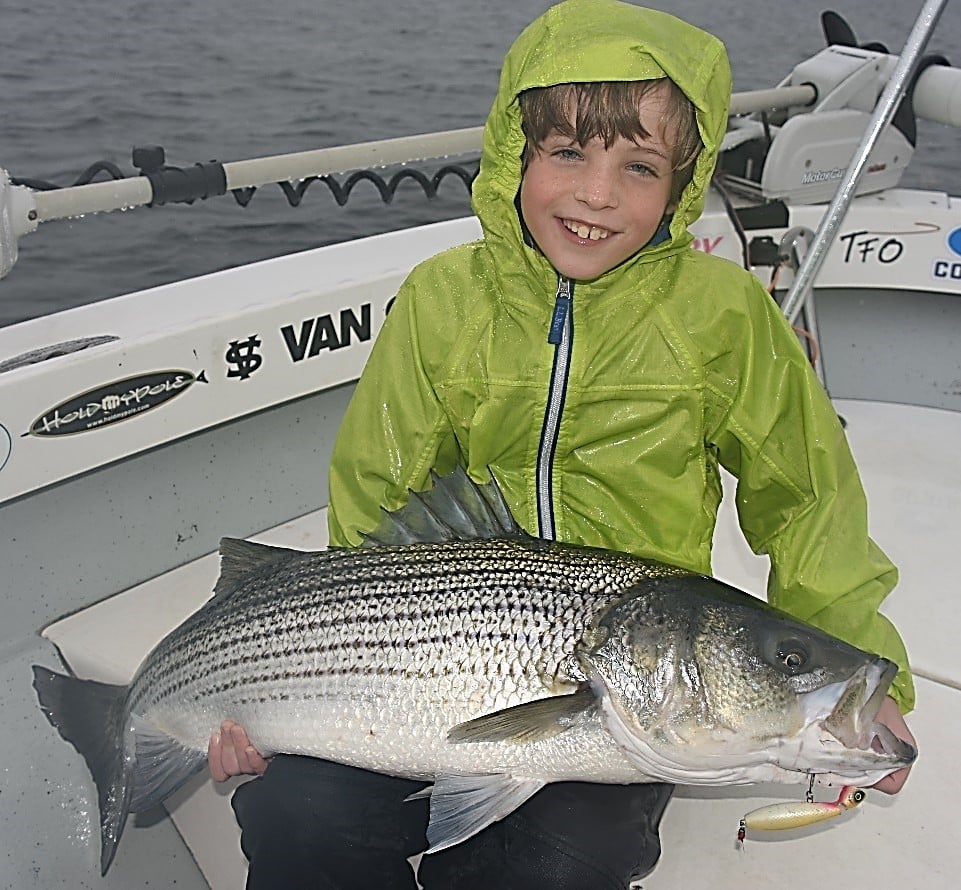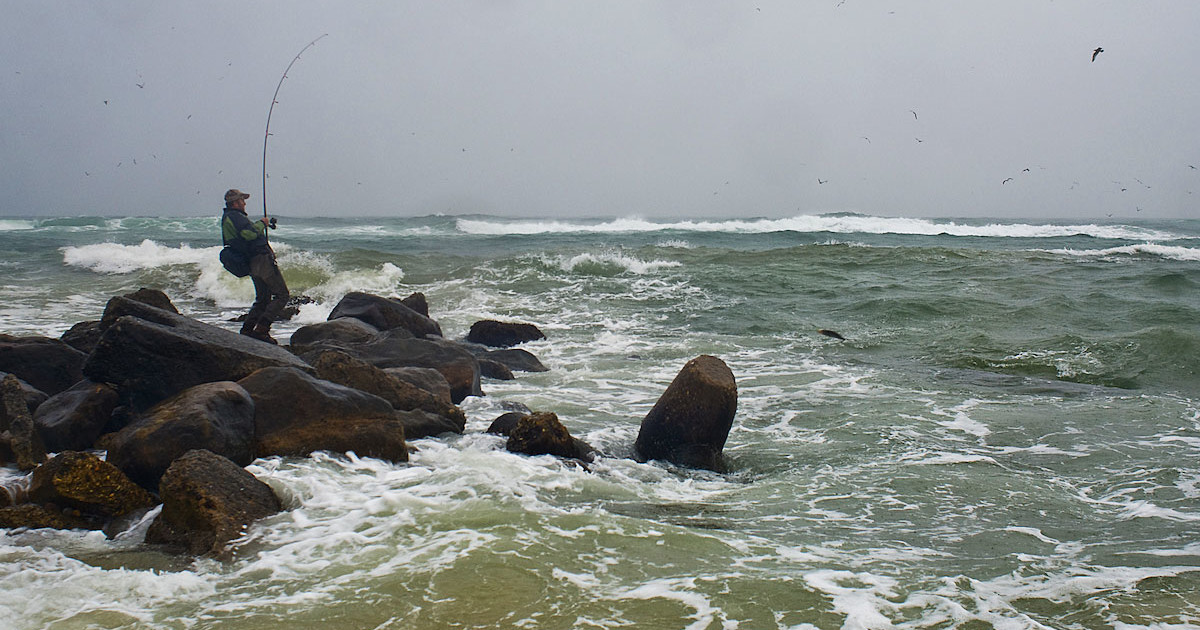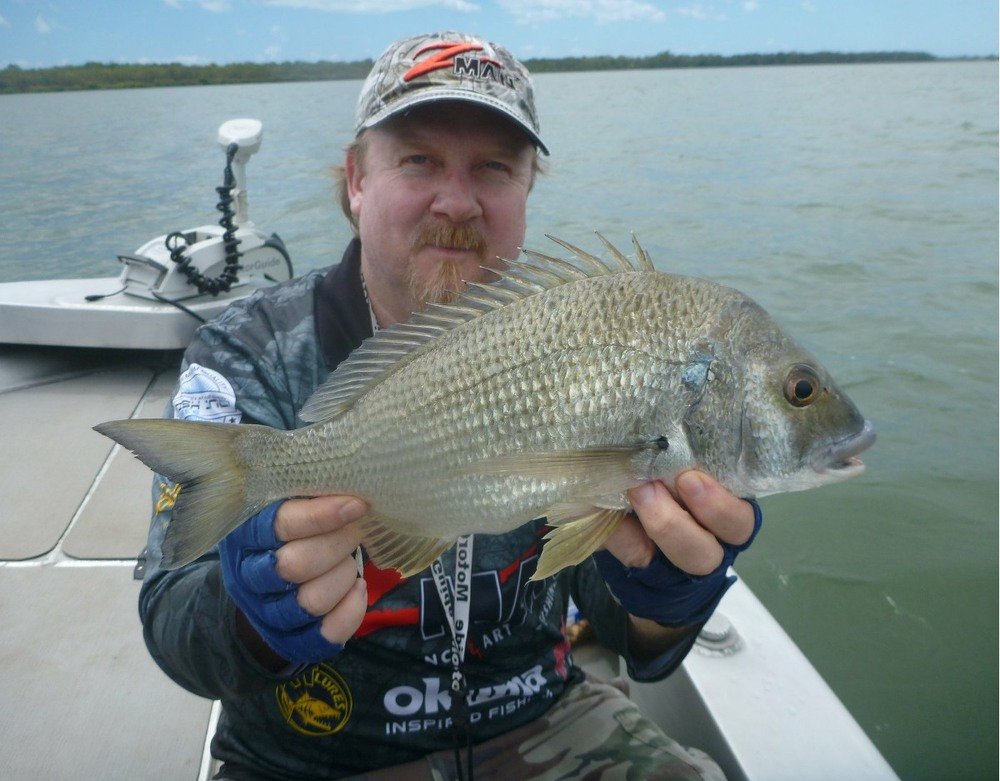Yes, it is good to fish in the rain in saltwater. Fish often become more active during rain.
Rain can stir up the water, bringing food to the surface. Fishing in the rain offers a unique experience. The sound of raindrops hitting the water can be calming. Rain can also lower water temperatures, making fish more active. This creates a better chance to catch fish.
Rain can wash insects into the water, attracting fish to the surface. Fishermen often find that fish bite more during light rain. The rain also reduces visibility, helping you stay hidden from fish. So, grab your gear and enjoy fishing in the rain. It’s a great way to connect with nature and improve your chances of a good catch.

Credit: www.saltwatersportsman.com
Weather Patterns
Fishing in the rain can be a unique experience. Understanding the weather patterns is crucial. This knowledge can help you catch more fish. The weather affects fish behavior. It also influences your fishing strategy. Let’s explore how different weather elements impact saltwater fishing.
Rainy Conditions
Rain changes the water temperature. It can cool down the surface. Fish often move to these cooler areas. Rain also affects water clarity. Raindrops can make the water murky. This can hide your bait from fish. Use brighter or larger lures in rainy conditions.
Rain can also increase oxygen levels in water. Fish are more active in oxygen-rich environments. This can lead to a higher chance of bites. Remember to wear waterproof gear. Stay dry and comfortable while fishing in the rain.
Wind And Waves
Wind creates waves in the ocean. These waves can bring food to the surface. Fish follow the food, making them easier to catch. Pay attention to wind direction. Fish often swim with the current. Position yourself accordingly for better results.
High winds can be challenging. They make it difficult to cast your line. Use heavier weights to keep your bait steady. High waves can also be dangerous. Always prioritize safety. Check weather forecasts before heading out.
| Weather Element | Impact on Fishing |
|---|---|
| Rain | Cooler water, increased oxygen, murky water |
| Wind | Waves bring food, fish follow currents |
| Waves | Can be dangerous, affects casting |

Credit: www.charterfishingdestin.com
Fish Behavior
Fishing in the rain can be a unique experience. Understanding fish behavior helps. Fish react differently to various weather conditions. Rain impacts their behavior in saltwater. Knowing their feeding habits and movement patterns can boost your chances of a successful catch.
Feeding Habits
Rain often stirs up the water. This can dislodge food particles. Fish are opportunistic feeders. They take advantage of this increase in food. Rain may create a feeding frenzy. Fish become more active. They search for food closer to the surface. This is the perfect time to cast your line.
Some species prefer low light. Rainy days are ideal for them. Overcast skies create a dim environment. This makes them more comfortable. They come out to feed more actively. You can target species like snook and redfish during these times.
Movement Patterns
Rain changes the water temperature and oxygen levels. Fish respond to these changes. They move to areas where they feel comfortable. Rain can make fish move closer to the shore. Freshwater runoff affects the salinity. Fish may follow these changes to find the best conditions.
Fish also seek shelter during heavy rains. Structures like rocks and reefs provide protection. Knowing these areas can help you locate fish. Cast near these structures for better chances. Fish might also move to deeper waters if the rain is intense.
Additionally, currents and tides play a role. Rain can alter these patterns. Fish will follow the easiest path. Understanding these changes helps you predict fish movement. Adapt your fishing strategy accordingly. This increases your chances of success.
Essential Gear
Fishing in the rain can be an exhilarating experience, but it requires the right gear. Proper equipment ensures you stay dry, safe, and efficient. Below are key items to consider when heading out for a rainy saltwater fishing trip.
Rain-resistant Equipment
Investing in rain-resistant equipment is crucial. This includes:
- Waterproof Fishing Jacket: Keeps you dry and warm.
- Rain Pants: Essential for keeping your lower body dry.
- Waterproof Boots: Ensure feet stay dry and provide good grip.
- Dry Bags: Protect your gear from water damage.
Choose high-quality materials. This extends the lifespan of your gear. Look for items with sealed seams and waterproof zippers.
Safety Gear
Safety gear is just as important as your fishing equipment. Always bring:
- Life Jacket: Essential for any boating activity.
- First Aid Kit: Handle minor injuries on the spot.
- VHF Radio: For emergency communication.
- Headlamp or Flashlight: Useful in low light conditions.
Check your safety gear regularly. Ensure everything is in working order before you head out.
| Item | Purpose |
|---|---|
| Life Jacket | Safety in case of falling overboard |
| First Aid Kit | Treat minor injuries |
| VHF Radio | Emergency communication |
| Headlamp | Visibility in low light |
Being prepared with the right essential gear can make your fishing trip in the rain both enjoyable and safe.

Credit: www.themeateater.com
Best Fishing Spots
Fishing in the rain can be an exciting adventure, especially in saltwater. The rain can attract various fish species, making it a great time for fishing enthusiasts. The key is to know the best fishing spots. Here, we will discuss some of the top places to cast your line.
Coastal Areas
Coastal areas are excellent for rain fishing. The rain often stirs up the water, bringing fish closer to the shore. Some popular coastal spots include:
- Beaches: Fish like to swim near the shore during rain.
- Jetties: These structures provide shelter for fish, making them easy to catch.
- Piers: Fishing from a pier gives you access to deeper water without needing a boat.
In coastal areas, you can catch various species such as redfish, snook, and flounder. It’s a great way to enjoy fishing without going far from land.
Offshore Locations
For those who prefer deeper waters, offshore locations are ideal. When it rains, fish tend to move around more, making them easier to find. Some popular offshore spots include:
- Reefs: These underwater structures attract many fish species.
- Shipwrecks: Wrecks create habitats for fish, providing great fishing opportunities.
- Drop-offs: Areas where the sea floor suddenly drops can be rich with fish.
Offshore fishing can lead to catching larger species like tuna, marlin, and mahi-mahi. Ensure your boat is well-equipped for rain and safety.
Both coastal and offshore locations offer unique opportunities for rain fishing in saltwater. Choose your spot and enjoy the thrill of the catch!
Fishing Techniques
Fishing in the rain can be exciting. The rain often brings fish closer to the surface. This makes it a good time to try different fishing techniques. Here, we will cover two main techniques: bait and lures, and casting methods. Understanding these will help you catch more fish even in rainy conditions.
Bait And Lures
Using the right bait and lures is crucial. Fish are more active during rain. They are likely to respond to live bait. Worms, shrimp, and small fish can work well. You can also use artificial lures. Bright and flashy lures attract fish in murky water. Consider using lures that mimic the movement of small prey. The rain can churn up the water, making it harder for fish to see.
Here is a simple table to help choose your bait and lures:
| Bait Type | Best Use |
|---|---|
| Live Worms | Attracts many fish types |
| Shrimp | Effective for saltwater fish |
| Bright Lures | Good for murky water |
Casting Methods
In the rain, your casting methods may need to change. Fish are often near the surface. Cast your line near areas where fish gather. Look for places with lots of movement. This might be near rocks or underwater plants. Use a smooth, steady motion to cast your line. Avoid jerky movements. They can scare fish away.
Here are some tips for effective casting:
- Use a smooth, steady motion
- Cast near areas with fish movement
- Avoid jerky movements
Fishing in the rain can be rewarding. The right techniques can make all the difference. Enjoy your time on the water and stay safe!
Safety Tips
Fishing in the rain can be an exhilarating experience. But safety should always come first. Here are some crucial safety tips to keep in mind.
Weather Precautions
Check the weather forecast before heading out. Rain is fine, but storms are not. Avoid fishing during thunderstorms. Lightning can be deadly on open water.
| Weather Condition | Recommended Action |
|---|---|
| Light Rain | Proceed with caution |
| Heavy Rain | Seek shelter |
| Thunderstorm | Cancel the trip |
Wear proper gear. Waterproof jackets and boots keep you dry. Use a hat to shield your face from the rain.
Keep your gear safe. Store electronic devices in waterproof bags. Use a dry box for important items.
Emergency Plans
Always have an emergency plan. Know the nearest exit points. Inform someone about your fishing plan.
- Share your location with a friend or family member.
- Keep a first aid kit handy.
- Carry a charged mobile phone.
Have a backup plan. If the weather worsens, return to shore immediately. Stay calm and follow your plan.
Keep an eye on your surroundings. Monitor changing weather conditions. Be ready to act quickly if needed.
By following these safety tips, you can enjoy fishing in the rain safely and confidently.
Frequently Asked Questions
Is Fishing In The Rain Good For Saltwater?
Yes, fishing in the rain can be good for saltwater fishing. Rain can oxygenate the water, making fish more active. It also reduces visibility, making it easier to catch fish.
Do Fish Bite More In The Rain?
Fish often bite more in the rain due to increased oxygen levels and lower visibility. Rain can also stir up food, making fish more likely to bite.
What Gear Is Needed For Rain Fishing?
For rain fishing, waterproof clothing, non-slip boots, and a quality rain jacket are essential. Waterproof storage for electronics and tackle is also recommended.
Can Rain Affect Saltwater Fishing Conditions?
Yes, rain can affect saltwater fishing conditions by changing water temperature and salinity levels. It can also make fish more active and easier to catch.
Conclusion
Fishing in the rain for saltwater can be a great experience. Fish often become more active, making it easier to catch them. Rain can also help mask your presence. Wet weather means fewer anglers, so you get more space. Safety is key, so watch for storms.
Always have proper gear and rainwear. Try fishing in the rain; it might become your favorite.



